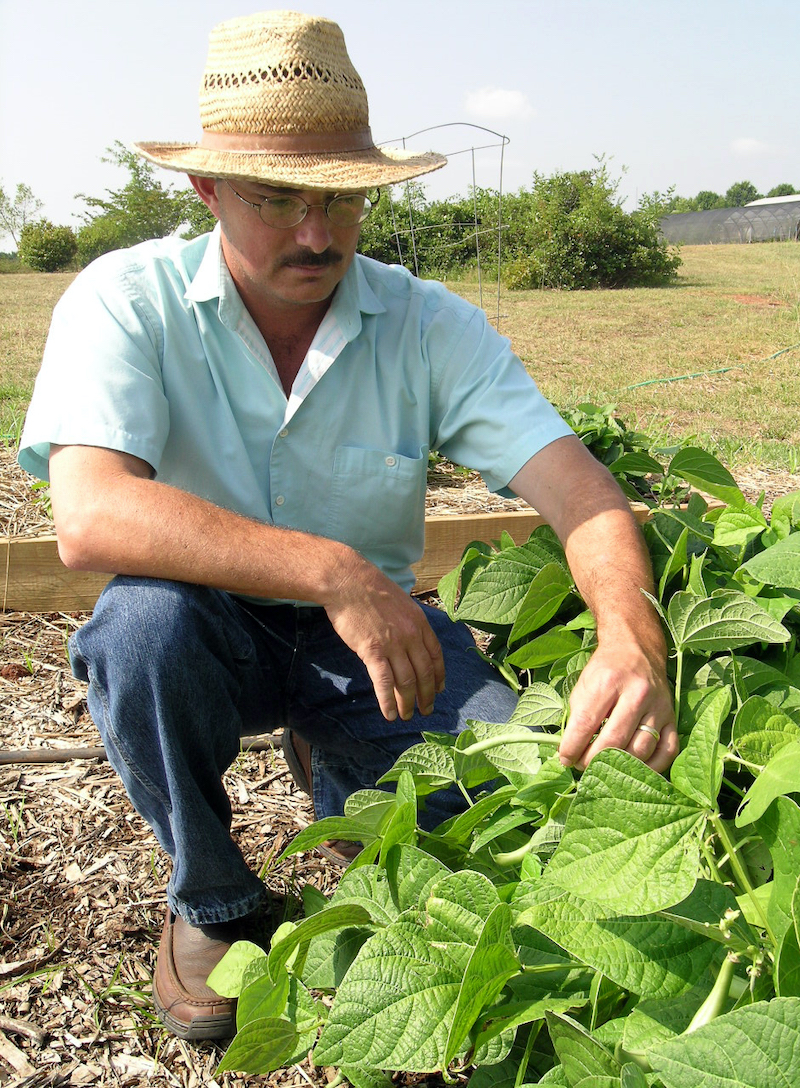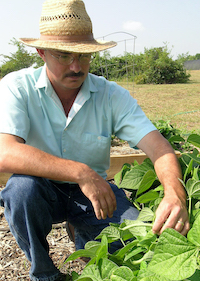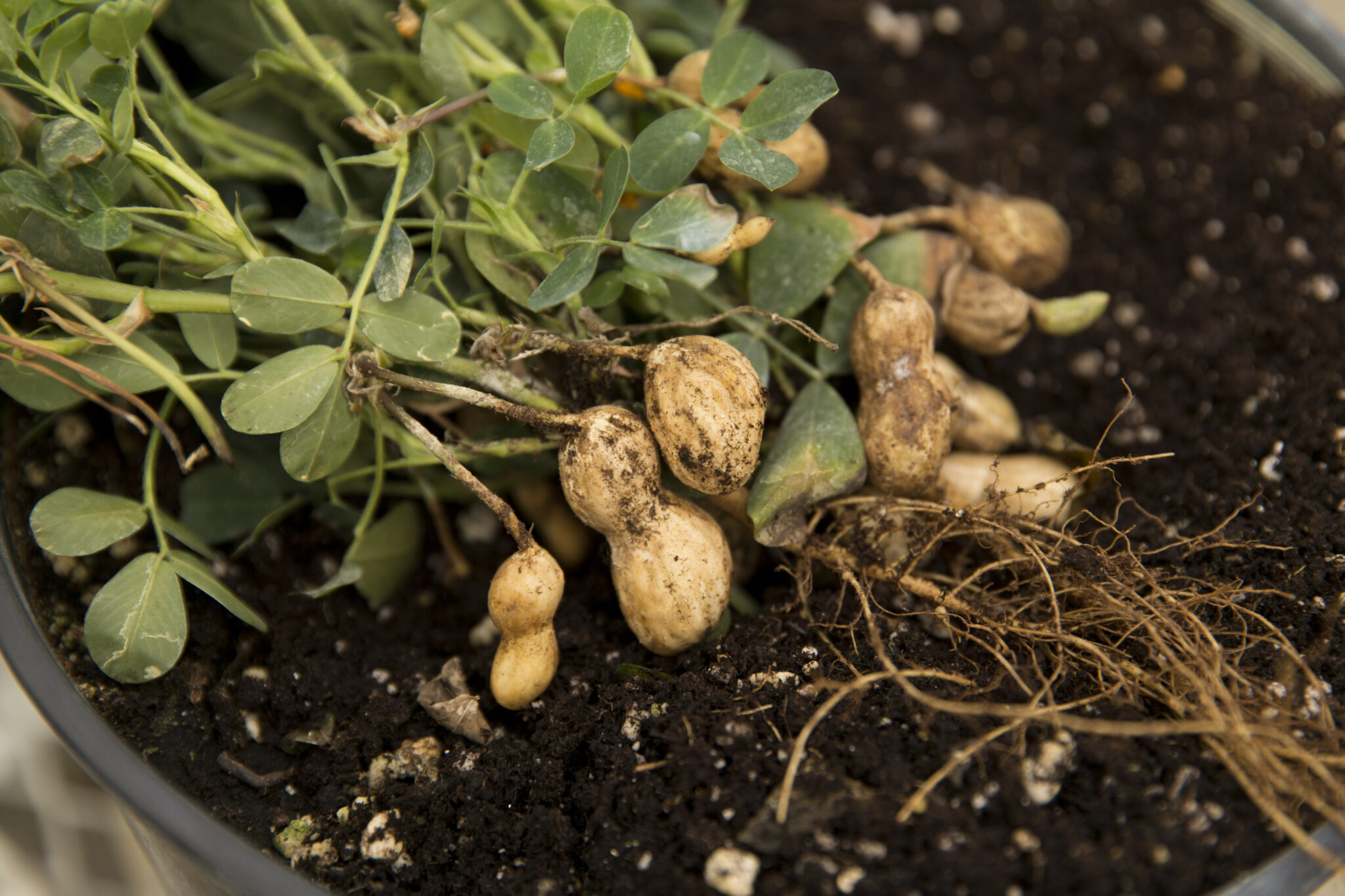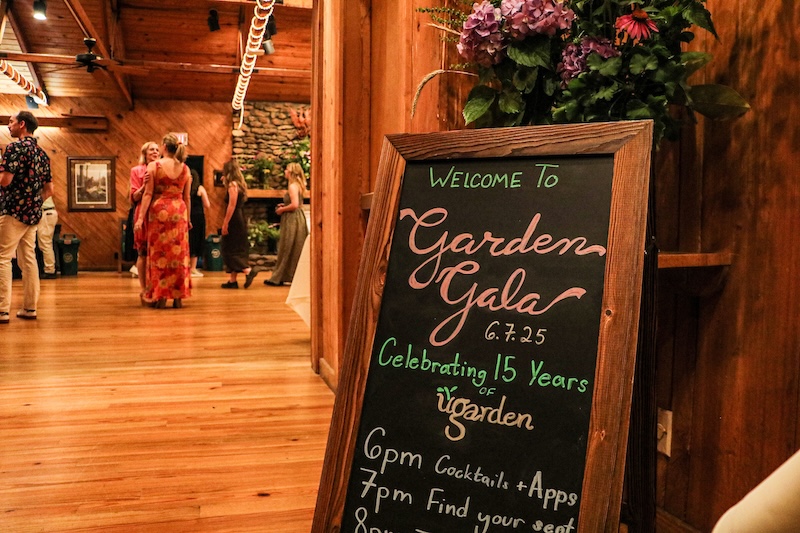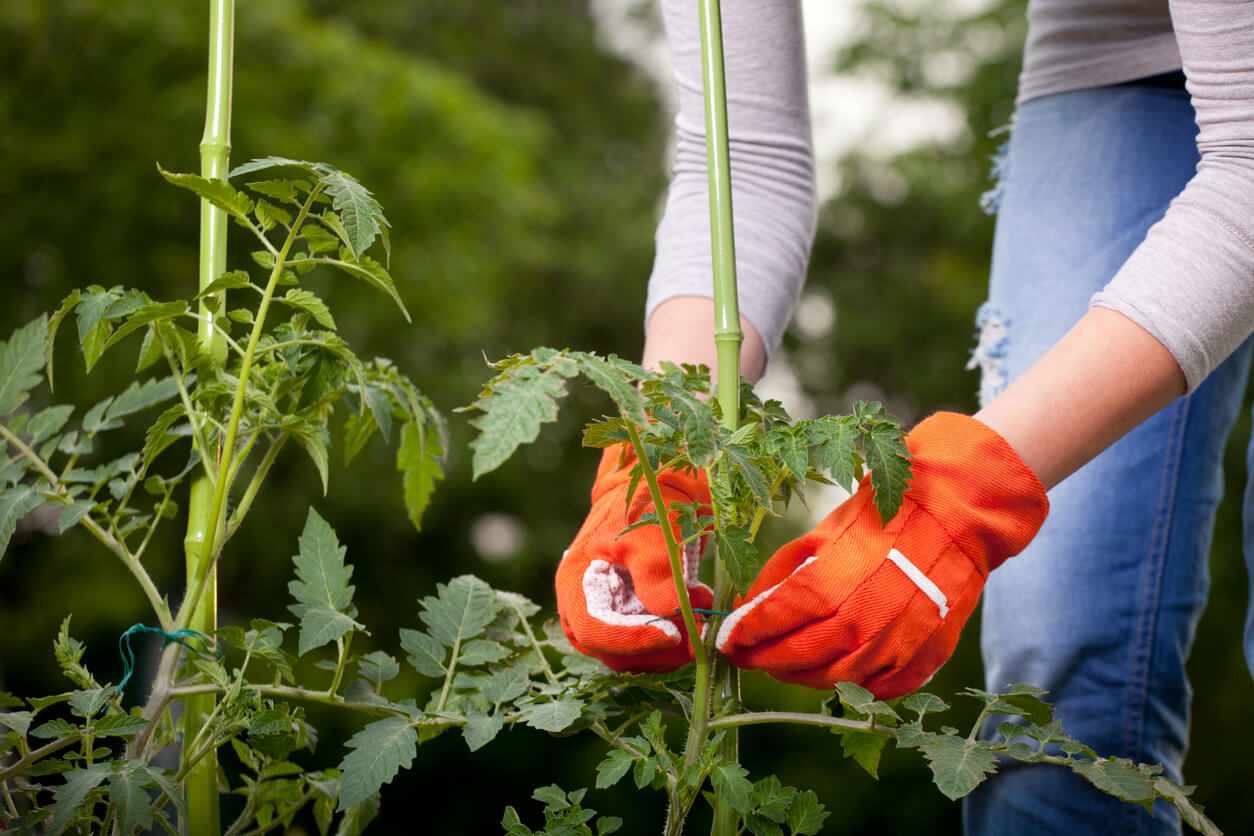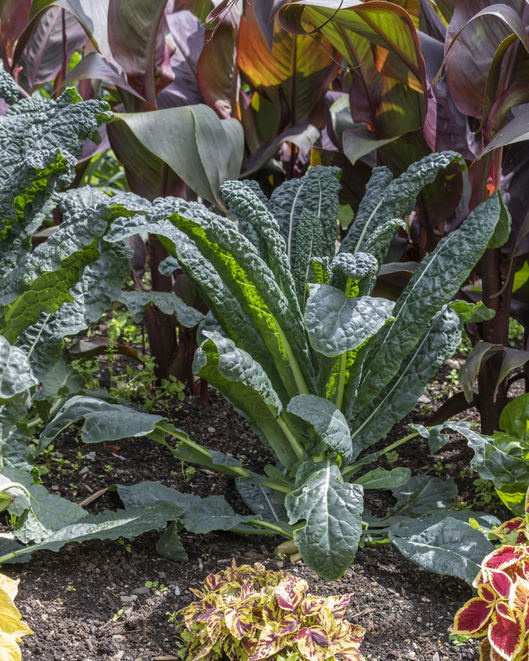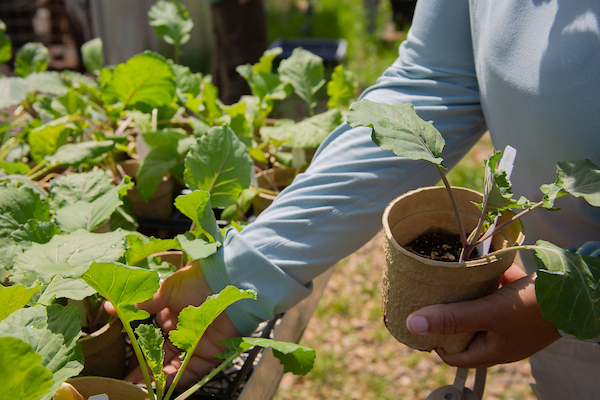Backyard gardeners thinking of turning their hobby into a business should start small, according to University of Georgia consumer horticulturist Bob Westerfield.
Westerfield has advised home gardeners across the state for more than 25 years – first as a UGA Extension agent and for the past 20 years as Extension’s home gardening expert. He manages research gardening plots on the UGA College of Agricultural and Environmental Sciences’ campus in Griffin in order to study the pests and diseases that home gardeners tackle.
He and his wife, Carmen, grow vegetables for their own use and to sell through co-ops and online markets in Pike County in addition to growing blueberries in south Georgia.
Westerfield advises gardeners who want to sell their produce to begin small.
“Think small to begin with, unless you have a lot of help and equipment,” he said. “I recommend a quarter- or half-an-acre plot.”
Planting, maintaining and harvesting a garden take time. Determine how much time you have to devote to a garden before you plant a big plot, he said.
“You have to pick okra and squash every day. It takes a non-stop commitment,” Westerfield said. “You have to have time to do it. It can work you to death if you’ve never done it before.”
In addition to time, resources are a must when caring for a garden of any size.
“Smaller gardens may get by with just shovels and hoes, but for large plots of okra and corn you need some equipment to help you. Tillers, small tractors, a small hobby farm tractor—we’re talking thousands of dollars in equipment,” Westerfield said.
Even with small-scale equipment, someone has to tend the garden, pull weeds and pick vegetables at harvest time. “Everyone loves working in the garden in May, but not in July and August. I hire summer helpers, and it’s hard to find folks to work in a garden in August,” Westerfield said.
Access to water is essential for success no matter the size of the garden plot. The cost of water has to be worked into the small business budget. Using public water will result in a higher water bill, and a well costs about $5,000, he said.
Buying transplants can also be expensive. Westerfield recommends gardeners grow transplants from seed. “It’s hard to make a living if you don’t grow your own. It’s going to get really expensive if you don’t grow them yourself,” he said.
Just like other businesses, a small farm business needs a business license. “In most cases for a roadside stand, you need a business license. If you are selling processed foods, like pickled okra or jellies, you need a cottage food license,” Westerfield said.
Organic vegetables are a niche market, but Westerfield warns small farmers not to label their produce as such. “If you are you are selling vegetables, your farm has to be inspected on the national level to get organic certification,” he said.
Pick-your-own farms should have liability insurance to cover accidents and taxes must be paid on any income made from small gardens, he said.
Like all businesses, a small farm business needs customers. Westerfield recommends small farmers sell their produce through online farmers markets and local farmers markets, to friends and relatives and, if supplies are large enough, to school systems.
Westerfield also recommends small farmers look for specialty or niche markets. “Offer unique crops like asparagus, Brussels sprouts, Swiss chard, colorful lettuce, Italian and hot peppers, and herbs,” he said.
Small farm owners have to balance the costs to determine if a profit can be made. “If you sell three tomatoes for $2.50, but you bought an $80,000 tractor, you should be charging $150 for those tomatoes to break even,” he said.

